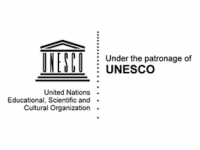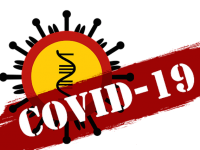Local
UNESCO CALLS FOR COVID-19 VACCINES TO BE CONSIDERED A GLOBAL PUBLIC GOOD
ACCORDING TO IBC AND COMEST

Vaccin Logo (Source: French Government)
USPA NEWS -
UNESCO´s International Bioethics Committee (IBC) and the World Commission on the Ethics of Scientific Knowledge and Technology (COMEST) have called for a change of course in current COVID-19 vaccination strategies, urging that vaccines be treated as a global public good to ensure they are made equitably available in all countries, and not only to those who bid the highest for these vaccines. Both committees have a long track record in providing ethical guidance on sensitive issues*.
The statement was presented during an online event on 24 February, which gathered UNESCO´s ethics bodies together with Dr Tedros Adhanom Ghebreyesus, Director-General of the World Health Organization, and Professor Jeffrey Sachs from Columbia University.
The statement was presented during an online event on 24 February, which gathered UNESCO´s ethics bodies together with Dr Tedros Adhanom Ghebreyesus, Director-General of the World Health Organization, and Professor Jeffrey Sachs from Columbia University.
The statement was presented during an online event on 24 February, which gathered UNESCO´s ethics bodies together with Dr Tedros Adhanom Ghebreyesus, Director-General of the World Health Organization, and Professor Jeffrey Sachs from Columbia University. “When vaccination campaigns were announced across the globe, the world breathed a sigh of relief,“ said UNESCO Director-General Audrey Azoulay. “Without solidarity, we are far from achieving this goal, and over 130 countries have yet to receive a single dose and the most vulnerable, so far, are not protected.“ --------------------------------------
While some advanced countries have secured enough vaccines to protect their entire population two, three or five times over, the global south is being left behind. As things stand today, the inhabitants of many developing countries will not have access to vaccines until well into 2022. The latest announcements by the G7 are welcome, but they need to be translated into effective delivery of vaccines in developing countries. “We will not end the pandemic anywhere until we end it everywhere, said Dr Tedros Adhanom Ghebreyesus. “Ultimately vaccine equity is not just the right thing to do, it is the best way to control the pandemic, restore confidence and reboot the global economy. So, I welcome the UNESCO ethics commissions' statement on vaccine equity and solidarity. It is very timely. (...) Together we can end the pandemic!“------------------------------
Professor Sachs called on the IMF to allow for developing countries to draw on Special Drawing Rights to finance the development of vaccines, adding that developed countries should show more solidarity and contribute to funding the COVAX facility. “It is a tiny fraction of the trillions that have been spent in addressing the pandemic. But it is the last mile to ensure that COVID-19 goes away effectively,“ said Professor Sachs.
THE IBC-COMEST STATEMENT STRESSES THESE KEY MESSAGES------------------------------------------------------------
Firstly, pharmaceutical industries have a responsibility to share the intellectual property acquired with government support to enable manufacturers in all countries to provide access to vaccines for all, which should be considered a global public good. The IBC and COMEST also stress the responsibility of the pharmaceutical industry to invest in factories capable of producing vaccines of the highest possible efficacy and facilitating rapid distribution where needed. Secondly, the IBC and COMEST say that the vaccine´s benefit to the greatest number of people cannot be considered the sole ethical criterion. Equality, equity, protection from vulnerability, reciprocity and the best interests of children must also be taken into account. Furthermore, decisions on fair distribution and prioritization should be based on the advice of a multidisciplinary group of experts in bioethics, law, economics, and sociology, together with scientists.-----------------------------------------------------------
Thirdly, the IBC and COMEST consider that vaccination strategies should be based on a non-compulsory, non-punitive model, grounded in information and education, including dialogue with people who may be hesitant about vaccination or hostile to it. Refusing to be vaccinated should not affect the individual´s fundamental rights, specifically his or her right to access healthcare or employment.--------------------------------------------------------------------------------------------------------------
Other issues the statement covers include: international cooperation across all different sectors working on COVID-19 to share the benefits of research; the sustainability issues that favour the emergence of zoonotic diseases; trust in science and healthcare authorities; the indispensable need for dialogue between science, ethics, politics and civil society.
****
*UNESCO has a long track record of providing ethical guidance on sensitive subjects, including the Universal Declaration on Bioethics and Human Rights and the Universal Declaration on the Human Genome and Human Rights.
****
Covid-19 Outbreak Unesco Astrazeneca Vaccine Ibc Comest Un Pfizer-biontech Jedi Foster Rahma Sophia Rachdi
Liability for this article lies with the author, who also holds the copyright. Editorial content from USPA may be quoted on other websites as long as the quote comprises no more than 5% of the entire text, is marked as such and the source is named (via hyperlink).







